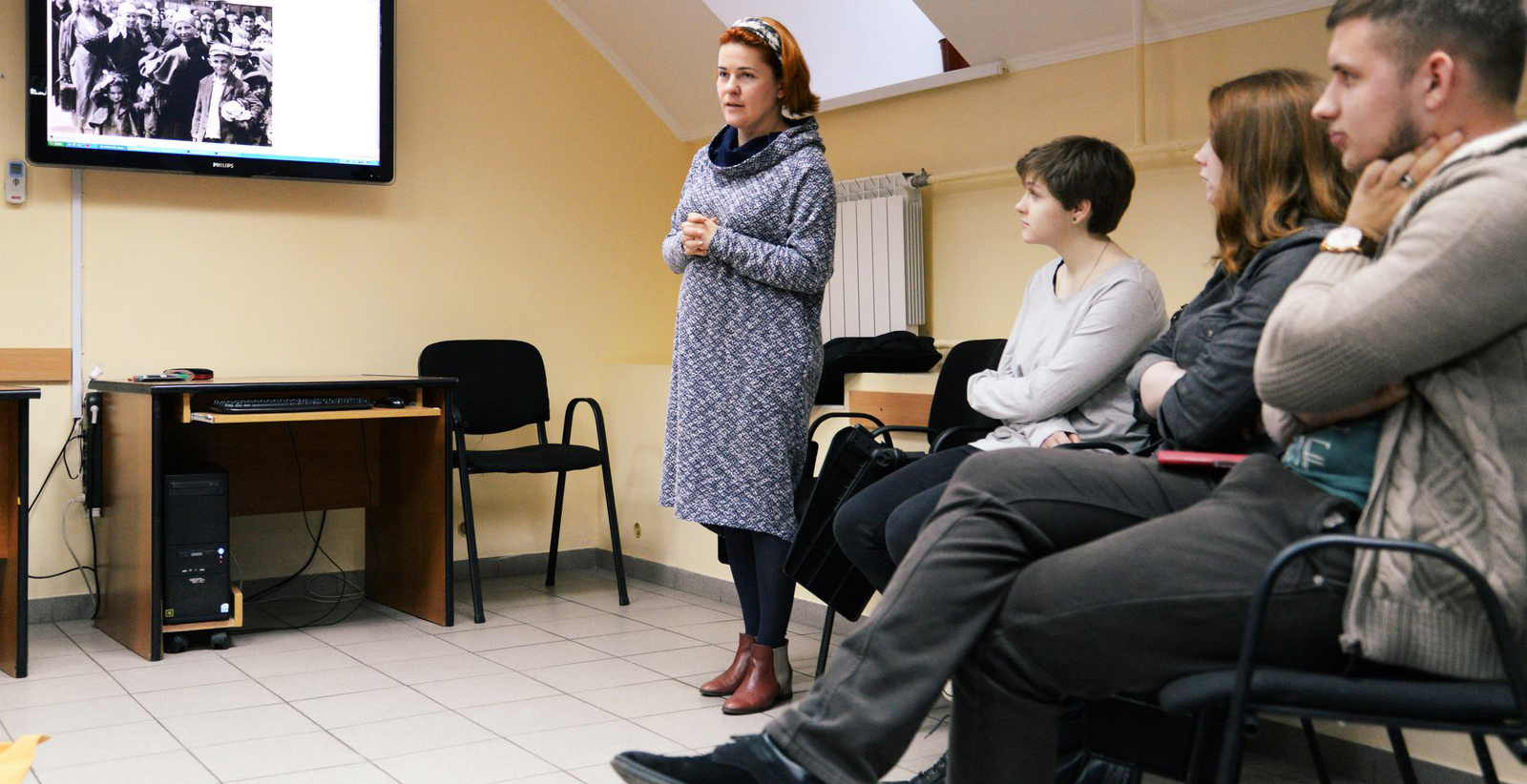Ukrainian Students Pilot “Arrival at Auschwitz” IWitness Activity

USC Shoah Foundation’s IWitness activity “Arrival at Auschwitz” was piloted in Ukraine last week with 15 students, many of whom had experienced being displaced themselves in the country’s 2014 unrest.
The Ukrainian-language activity was led by Anna Lenchovska, USC Shoah Foundation’s regional consultant in Ukraine, who works with educators in the country to use testimony in classrooms.
The activity, which is already available in its English, Hungarian and Czech form on IWitness, asks students to analyze photographs of Jewish men, women and children deported from the city of Beregovo who arrived at the Auschwitz-Birkenau concentration camp in 1944. It also pairs the photographs with audio testimony from survivors who endured the process and asks students to think about how each of the photographs and the testimony add value to the other.
“Arrival at Auschwitz” is intended for high school students, like the 15 and 16-year-olds it was introduced to at the Kyiv Tolerance Club. These students were unique, however, in that some had been internally displaced within Ukraine, and others had fathers who had been drafted to anti-terrorist organizations in eastern Ukraine. These experiences allowed students to better connect with the activity.
“It is important to remember because it happened and many people and cultures were involved,” a student said in an evaluation of the activity. “So we should remember for it not to happen again.”
"It is important to remember, because only when you feel it with your own skin, you might realize the consequences of destruction,” one student said.
One thing students took away from IWitness was that acts against humanity are not something endured alone.
“It just seems that it touches only some people, but in reality it involves the whole planet,” said another student.
In her 10 years working to educate students around the country, Lenchovska also worked on developing Encountering Memory, an educational guide for students to use during and after watching USC Shoah Foundation-produced documentary Spell Your Name.
Lenchovska leads seminars about human rights all over Ukraine, something that has hit home with many residents, as in 2014 the country witnessed significant internal unrest from pro-Russian and anti-government groups that led to many human rights violations. At the time, thousands of students in Ukraine were forced to attend schools in different cities because their hometowns were too dangerous.
In addition to her work with USC Shoah Foundation, Lenchovska serves as executive director of the Congress of National Minorities of Ukraine and practices as a psychotherapist at Kyiv Gestalt University.
This IWitness activity expanded on the tools Lenchovska uses to pursue her goal of educating students about atrocities in a personal way.
“One of [the] very important elements of such education for moral unity or values unity is to keep humanistic values a priority, to focus on human dignity,” she wrote in a 2014 blog post.
Like this article? Get our e-newsletter.
Be the first to learn about new articles and personal stories like the one you've just read.